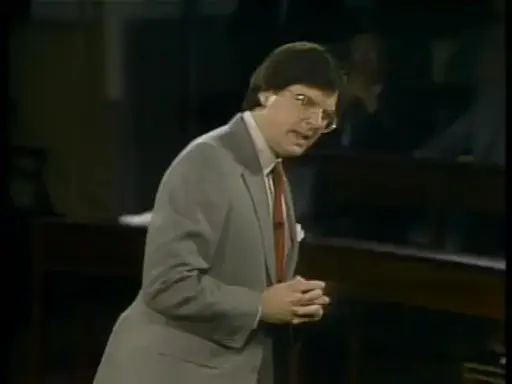These discussions were held in front of an audience at Columbia University Law School back in an era where you had to be cordial even if it’s clear you hated each other, so it’s a pretty interesting series of discussions.
They do a decent job of trying to balance voices from the left and right.
Warning, there are some super assholes who represent the right.
Executive Privilege and Delegation of Powers
Can the President’s conversations with advisors remain secret when Congress demands to know what was said? Congresswoman Barbara Mikulski, former President Gerald Ford, and Watergate prosecutor Archibald Cox bring first-hand experience to this topic.War Powers and Covert Action
If the president, as commander in chief, decides to declare war, can Congress restrain him? Debating the issue are Gerald Ford, former CIA deputy director Bobby Inman, former secretary of state Edmund Muskie, and others.Nomination, Election, and Succession of the President
A tangled web of issues is involved in electing a president. Edmund Muskie, former presidential press secretary Jody Powell, party officials, and others discuss the role of political parties, the electoral college, and what to do if a president becomes disabled.Criminal Justice and a Defendant’s Right to a Fair Trial
Should a lawyer defend a guilty person? This and other questions are debated by Bronx district attorney Mario Merola, former New York mayor Edward Koch, CBS News anchor Dan Rather, and others.Crime and Insanity
Is a psychiatric evaluation precise enough to be allowed as testimony in a court of law? U.S. Court of Appeals judge Irving Kaufman, Hastings Center president Willard Gaylin, and others discuss the use of psychiatry in law.Crime and Punishments
Cruel and unusual punishment, from overcrowding in prisons to the death penalty, is debated by U.S. Court of Appeals judge Arthur Alarcon, Federal Bureau of Prisons director Norman Carlson, government leaders, civil libertarians, and journalists.Campaign Spending
Do limits on campaign spending infringe on First Amendment rights? Political consultant David Garth, Washington Post columnist David Broder, Bill Moyers, and others explore the issues.National Security and Freedom of the Press
What right does the public have to know about national security issues? Former CIA director and secretary of defense James Schlesinger, former attorney general Griffin Bell, and others debate the issue.School Prayer, Gun Control, and the Right To Assemble
A series of events embroils a small town in First and Second Amendment controversies. Featured are Griffin Bell, former secretary of education Shirley Hufstedler, and civil liberties counsel Jeanne Baker.Right To Live, Right To Die
Gloria Steinem, Joseph Califano, Rep. Henry Hyde, Phil Donahue, and others discuss the right to make intensely individual decisions about dying, abortion, personal freedom, and privacy.Immigration Reform
The rights of legal and illegal aliens to employment and to medical and educational services are debated by U.S. Court of Appeals judge Arlin Adams, Notre Dame president Rev. Theodore Hesburgh, and immigration officials and journalists.Affirmative Action Versus Reverse Discrimination
Are quotas based on sex or race unconstitutional? Participants include Ellen Goodman, former EEOC chair Eleanor Holmes Norton, Washington Post columnist William Raspberry, and United Federation of Teachers president Albert Shanker.Federalism
How much power the federal government can wield over state and local affairs is debated in this final episode. Among those featured are Senators Orrin Hatch and Daniel Moynihan and Columbia University professor Diane Ravitch.
I’ve just watched the first one. Thanks for posting. It’s nice listening to a higher level of discourse after the current level of weak bullshit.



